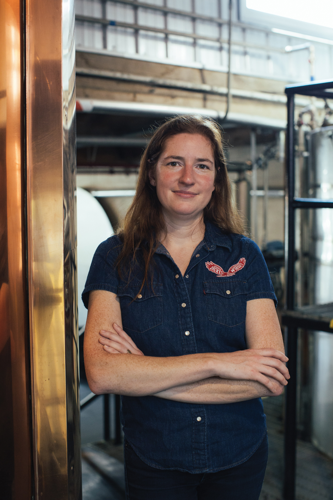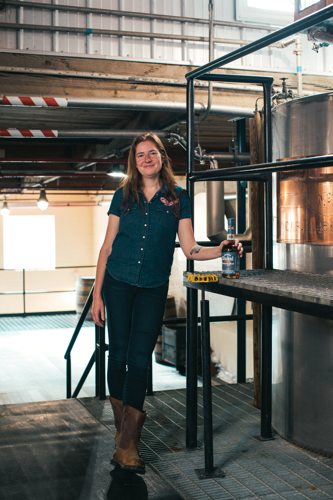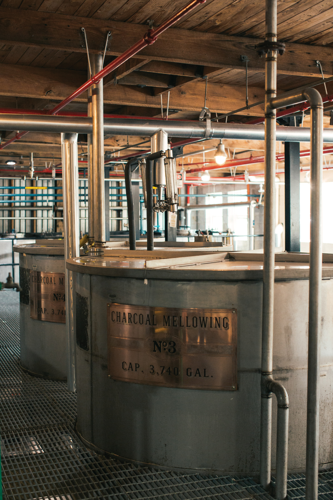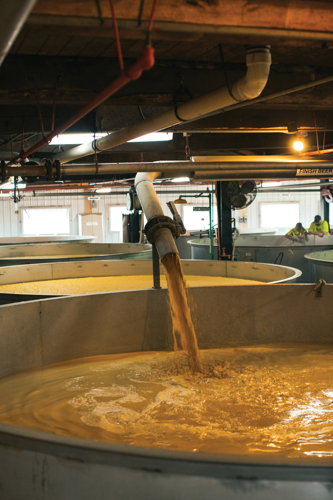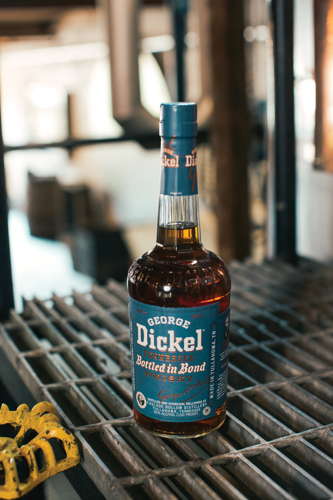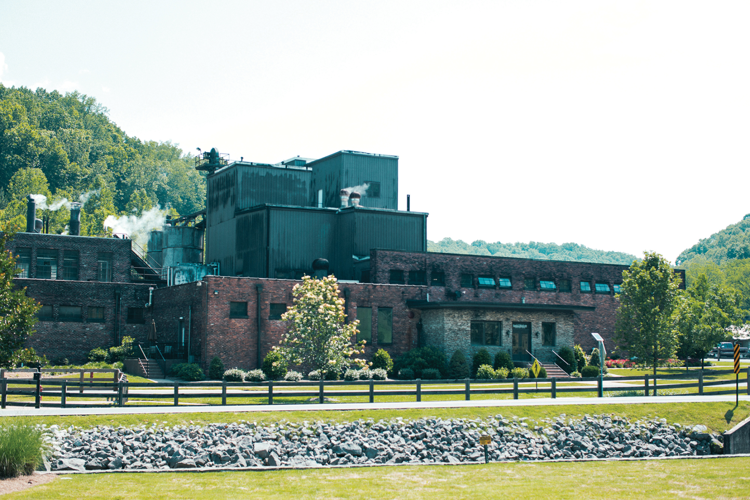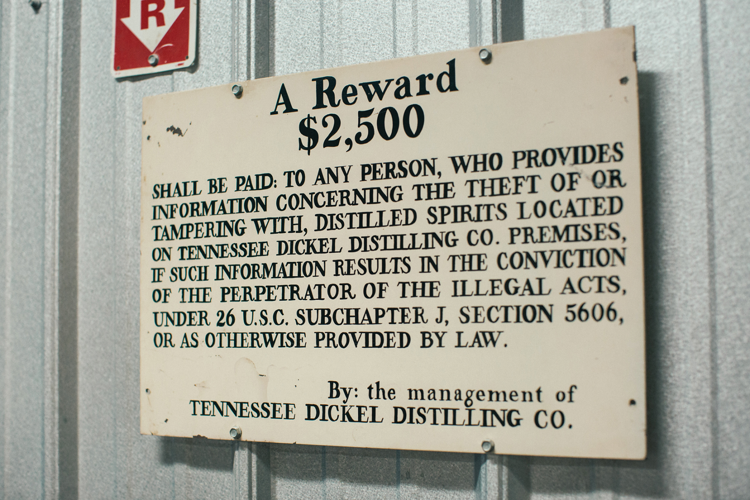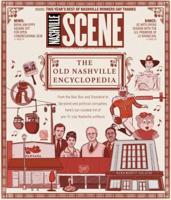Compared to some other distilleries, George Dickel in Tullahoma, Tenn., has always been a bit of a good-ol’-boy operation. While the workers you encounter on tours along the Kentucky Bourbon Trail are usually clad in crisp, clean uniforms festooned with corporate logos, at Dickel the only logo you’re likely to see is the Power T on the employees’ Vols baseball caps. But don’t let the rural gestalt of the distillery fool you: There’s some really interesting innovation going on inside the distillery’s walls, and it’s being led by someone who is very good, but neither ol’ nor a boy.
Dickel’s parent company Diageo announced in 2018 that it had hired Nicole Austin as the general manager and distiller of the newly renamed Cascade Hollow Distilling Co., where George Dickel Tennessee Whisky has been produced for nearly 150 years. There was some precedent for placing a woman in the top spot, as Alissa Henley had served a brief stint as the distiller at Dickel before moving on to a new position at Sazerac’s forthcoming Tennessee operation. But Austin is so far outside the mold that most drinkers associate with Dickel, the announcement created a bit of buzz.

Rather than rising up through the ranks of a large distillery, Austin took an indirect path to management at Dickel. A chemical engineer with a degree from Manhattan College in New York (don’t expect her to sport a Big Orange cap anytime soon), Austin first burst onto the spirits scene as the master blender at Kings County Distillery in Brooklyn in 2010. I first encountered Austin in that role, speaking at The Bourbon Classic in Louisville when she called out her fellow panelists (all good and ol’ and boys) by saying, “I just want to know why the hell I’m the only woman up here on this stage.” The question elicited nervous laughter from the panel and the audience. I knew right then that this was a woman to keep an eye on.
In 2016, Austin jumped at the opportunity to combine her training as an engineer and as a distiller, taking a position as the project-commissioning engineer with William Grant & Sons for an expansion at the Tullamore DEW Distillery in Ireland. Her talents with both the technical and artistic side of distilling and her entrepreneurial spirit drew the attention of Diageo, which was looking to add innovation to its American whiskey portfolio. At the time of Austin’s hiring, Diageo’s senior vice president of North American whiskey, Sophie Kelley, said Austin was chosen because she demonstrated “a true vision for the future of the company, its brands and the category.” “Most importantly,” said Kelley, “she has all the energy, passion and tenacity to make it real.”
Austin’s tenure in Tullahoma started with a small setback almost immediately. An active equestrian, she fractured her skull in a serious riding accident and dealt with the results of her injury for the first few months on the job. During that time, Dickel released a new product, a novelty collaboration with Tabasco that finished their whiskey (which the company spells “whisky”) in used pepper barrels. That definitely raised eyebrows among spirits writers, because it just didn’t seem like the sort of product Austin would have had a hand in developing. In fact, she didn’t, and she penned thoughtful handwritten letters to several writers to explain that the peppery product was already in development when she was hired. While she now says the product has grown on her, she was very clear in her letter that it was not the sort of innovation she was planning for the future at Cascade Hollow. It was a very mature statement from a first-time distiller at a large corporation, and give credit where it’s due to Diageo for allowing her to speak candidly about her opinions. Austin is very thoughtful about her intentions moving forward now that she officially has the keys.
“There are two prongs to innovation in the distilling business,” says Austin. “The first is actual distillate innovation, but you can’t expect any real products to be released for years.” At Kings County, Austin participated in different projects including the development of Empire Rye, a spirit that recently won Double Gold at the prestigious San Francisco World Spirits Competition. Even though Austin didn’t stick around to celebrate that achievement with Kings County, she knows it was important to her career progression. “I had already created products at small scale,” she says, “but aging in small barrels to accelerate the process doesn’t fit into the cost structure here. I want to see what I can do at scale.” So stay tuned for the next generation of new products, which Austin is currently experimenting with.

But as a talented spirits blender, Austin has many opportunities available, and she can see the results of her efforts much more quickly. “The other side of innovation is from our mature stock,” she explains. “As soon as I got here, I asked to see our inventory. During the ‘bourbon boom’ of the last decade, so many distilleries sold down their mature stock, and so many things got de-aged. We still had warehouses full of mature whiskey, and I knew I wanted to explore that.”
To be clear, Diageo has sold off a portion of its own aged products from Dickel, and if you see a marketer advertising an older Tennessee whiskey that is of mysterious provenance, there’s a good chance it was born in Cascade Hollow. Austin immediately reined that in. “I haven’t completely put the kibosh on selling, but now nothing leaves without my permission,” she says. “Our barrel-tracking technology has gotten much better with new SAP technology, so we’re less likely to just ‘discover’ older barrels in the warehouse now. I made it a point to learn about what we have in stock, and had a pallet of samples delivered to my office to nose and taste. I didn’t want to wait six years to become an expert on our products.”
In her letters to the writers, Austin laid out her guiding principles, and the first one was “spirit quality first.” With this tenet in mind, she says she was pleased with what she discovered in Dickel’s single-level warehouses, spread around the distillery’s campus.
“That’s the privilege of having full warehouses,” says Austin. “We never have to make a blending decision based on anything but quality. I also saw an opportunity in our warehouses with some really high-quality stuff that wasn’t being highlighted in our regular product.”
Austin has seized that opportunity with the first new Cascade Hollow product released directly under her auspices, George Dickel Bottled in Bond. The Bottled in Bond Act of 1897 was enacted to help guarantee a spirit’s authenticity and level of quality in the days when consumers didn’t always know what sort of ingredients might be added to the whiskey by unscrupulous bottlers looking to stretch their supplies. The main principles of Bottled in Bond whiskey are that it must be produced in one specific distillation season of one year (January through June or July through December) by one distiller at one distillery. It must be aged in a federally bonded warehouse under U.S. government supervision for at least four years, and bottled at 100 proof. Austin is a big believer in such products. “I knew I wanted Bottled in Bond to be my first innovation, because it’s the only authenticity and quality standard we have in the industry that lets you know exactly what you’re getting.”
While many whiskey buyers appreciate the higher proof of Bottled in Bond products, Austin had another factor in mind when she developed the new whiskey. “Proof is the least important thing to me,” she says. “Seasonality is one of the most interesting aspects that doesn’t get enough attention. I had to find one season that had things I liked that would blend. I found this batch particularly captivating.”
The barrels Austin chose were from four distillation days during the fall of 2005, and she is excited about the concept of introducing the spirits equivalent of wine vintages at Dickel. “I wanted it to be recognizably Dickel, but more assertive,” she says. The result of her selections and blending talents are a bold whiskey that still maintains the usual fruity and vitaminy notes of George Dickel No. 12, but with much more character and a long, peppery finish. Austin suggests drinking the new product as part of a highball with quality soda water and a dash of bitters — or a bar spoon of sherry if you’re feeling fancy. Retailing at around $34.99, Dickel Bottled in Bond is a remarkable bargain, considering the proof premium and compared to the cost of other 13-year-old whiskeys, including other brands that are selling purchased Diageo stock at much higher prices.
The whiskey will be released in two lots — one earlier this month and another in late summer, in preparation for the holidays. Even though the supply will be allocated to the Southeast, California and New York, you should be able to find it at higher-end liquor stores and at the distillery’s gift shop. “I really want to make sure that Tennessee gets enough,” Austin says. For that, we should be grateful.


